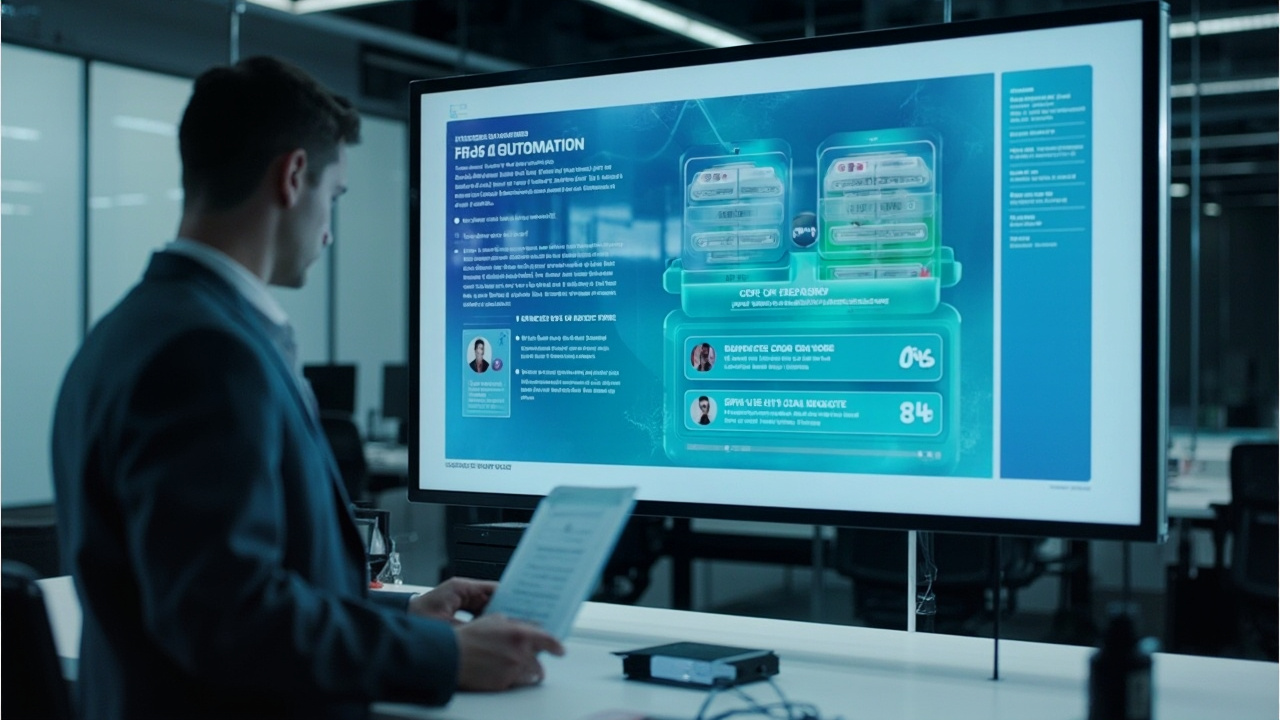In the ever-evolving digital world, where software applications are at the heart of businesses and consumer experiences, the significance of software testing cannot be overstated. As development cycles become more rapid and the complexity of applications grows, ensuring that software products meet quality standards is both a challenge and a necessity. Software testing is the critical process that determines whether an application is ready for deployment or if it still harbors undetected flaws that could lead to catastrophic failures post-launch.
For many organizations, traditional testing methods struggle to keep pace with the demands of modern software development. The sheer volume of code changes and the need for rapid iteration require testing approaches that are both robust and adaptable. This is where innovative solutions like GenQE come into play, offering AI-powered efficiency to streamline and enhance the testing process.
The Evolution of Software Testing: From Manual to Automated

The journey of software testing has been one of constant evolution. Initially, testing was a manual process, where human testers meticulously verified each function and feature of an application. While effective in its time, manual testing was labor-intensive, time-consuming, and prone to human error.
The Rise of Automated Testing
As software development methodologies evolved, so did the need for faster and more reliable testing processes. Automated testing emerged as a solution, allowing repetitive tests to be executed quickly and consistently. This approach not only increased testing speed but also improved accuracy by minimizing human intervention.
Automated testing tools like Selenium and Appium became staples in the software testing toolkit, providing frameworks to script and execute tests across various platforms. However, even these tools are not without their limitations. Test scripts often require constant updates to adapt to changes in the application, leading to significant maintenance overhead.
The Advent of AI in Testing
In recent years, artificial intelligence has begun to revolutionize software testing. AI-driven tools like GenQE leverage machine learning algorithms to generate and execute test cases, substantially reducing the need for manual intervention. By analyzing software requirements and historical data, these tools can create comprehensive test cases that ensure broader coverage and more reliable outcomes.
The integration of AI into testing not only enhances efficiency but also allows for intelligent test execution. By prioritizing tests based on risk analysis, AI-driven platforms ensure that critical areas are tested first, optimizing testing efforts and improving defect detection rates.
“AI is transforming software testing from a reactive process into a proactive strategy, anticipating defects before they impact users.”
This shift from manual and automated testing to AI-driven approaches marks a significant milestone in the quest for software quality, promising faster, more reliable, and cost-effective testing solutions.
Key Challenges in Modern Software Testing

Despite technological advancements, software testing faces several challenges that can impede the delivery of high-quality applications. Understanding these challenges is crucial for devising effective strategies to overcome them.
Complexity and Scale
Today’s software applications are more complex than ever, often integrating multiple systems, platforms, and technologies. Testing these applications requires a comprehensive approach that considers all possible interactions and dependencies. As the scale of applications increases, so does the complexity of testing them effectively.
Speed of Development
Agile and DevOps methodologies have accelerated the pace of software development, with continuous integration and continuous deployment (CI/CD) becoming standard practice. While these approaches enhance innovation and speed, they also place immense pressure on testing teams to keep up with rapid release cycles without compromising on quality.
Resource Constraints
Many organizations face resource constraints, both in terms of skilled personnel and budget. Testing teams are often expected to do more with less, necessitating the use of automation and intelligent tools to maximize efficiency.
Ensuring Comprehensive Coverage
Achieving comprehensive test coverage is a perennial challenge. With the myriad of devices, operating systems, and browsers available, ensuring that software functions seamlessly across all possible environments is no small feat. Test coverage gaps can lead to undetected defects, impacting user satisfaction and trust.
Strategies for Effective Software Testing in the Modern Era

To navigate the complexities of modern software testing, organizations must adopt strategies that enhance testing effectiveness while aligning with development goals. Several key strategies have emerged as vital for achieving this balance.
Embracing Automation and AI
Automation is no longer a luxury but a necessity in the fast-paced world of software development. By automating repetitive and time-consuming tests, organizations can focus their resources on more complex testing scenarios that require human expertise. AI extends this capability by enabling intelligent test case generation and execution, reducing the burden on testing teams and enhancing test accuracy.
Integrating AI-powered tools like GenQE can significantly streamline the testing process. GenQE’s ability to generate test cases based on software requirements and user behavior ensures that tests are both relevant and comprehensive, while its self-healing automation minimizes maintenance efforts by adapting to changes in the application interface.
“Automation and AI are not just tools but strategic enablers that empower testing teams to achieve more with less.”
Continuous Testing in DevOps
Incorporating continuous testing practices within DevOps pipelines ensures that testing is an integral part of the software delivery process. By automating tests and integrating them into CI/CD pipelines, organizations can quickly identify and address defects, reducing the risk of issues reaching production.
Continuous testing also supports faster feedback loops, allowing developers to address defects in real-time and maintain high-quality standards throughout the development lifecycle.
Focusing on Risk-Based Testing
With limited resources and time, prioritizing testing efforts becomes essential. Risk-based testing focuses on identifying and testing the most critical areas of an application that pose the highest risk to business operations or user satisfaction. By aligning testing efforts with business priorities, organizations can ensure that they address areas with the greatest potential impact first.
The Role of GenQE in Addressing Software Testing Challenges

While many tools and methodologies exist to tackle software testing challenges, GenQE stands out by offering a comprehensive AI-driven solution that addresses several key pain points in the testing process.
AI-Driven Test Generation and Execution
GenQE automates the creation of test cases through AI, analyzing software requirements, user behavior, and historical data to generate relevant and comprehensive tests. This capability reduces the dependency on manual test case design and ensures that testing efforts are both efficient and effective.
The platform’s smart test execution prioritizes and executes test cases based on risk analysis, allowing teams to focus on high-impact defects first. This risk-based approach aligns testing efforts with business priorities, ensuring that critical areas are addressed promptly.
Self-Healing Automation
Traditional test scripts often break when UI elements change, leading to increased maintenance efforts and downtime. GenQE’s self-healing capabilities automatically adjust test scripts, minimizing maintenance and reducing downtime. This feature is particularly valuable in environments where applications are frequently updated, ensuring that testing can keep pace with development without additional overhead.
“Self-healing automation is a game-changer, transforming how teams manage test script maintenance and ensuring seamless testing continuity.”
Comprehensive Test Coverage
GenQE provides extensive test coverage across various platforms, including web, mobile, APIs, and cloud environments. This ensures that applications function seamlessly across different devices and operating systems, addressing one of the most significant challenges in modern software testing.
Real-World Applications and Case Studies

Understanding the impact of advanced software testing solutions requires examining real-world applications and case studies where these tools have made a tangible difference.
Case Study: Accelerating Release Cycles
One organization faced challenges with their release cycles, struggling to keep up with the demands of rapid software updates. By integrating GenQE into their testing process, they automated over 80% of their test cases, significantly reducing testing time and increasing release frequency by 30%. This acceleration not only improved their time-to-market but also enhanced overall product quality.
Case Study: Enhancing Defect Detection
Another company sought to improve their defect detection rates, as critical issues were slipping through to production. Utilizing GenQE’s AI-powered defect detection, they identified patterns in test results that pointed to previously undetected anomalies. This proactive approach enabled them to address defects early in the development cycle, preventing costly production issues and improving user satisfaction.
“Proactive defect detection is not just about finding defects; it’s about preventing them from occurring in the first place.”
Future Trends in Software Testing

As technology continues to evolve, so too will the landscape of software testing. Several emerging trends are set to shape the future of testing, offering new opportunities and challenges for organizations.
AI and Machine Learning
AI and machine learning will continue to play a pivotal role in software testing, driving innovations that enhance efficiency and accuracy. As these technologies mature, we can expect even more intelligent test generation and execution, further reducing the need for manual intervention.
Shift-Left Testing
The shift-left testing approach, which emphasizes early testing in the development process, will gain traction as organizations seek to identify and address defects early. This proactive strategy not only reduces the cost of fixing defects but also accelerates development cycles.
Test Automation at Scale
As applications grow in complexity and scale, test automation will become increasingly critical. Organizations will need to adopt tools and frameworks that can handle large volumes of tests efficiently, ensuring that testing keeps pace with development.
Conclusion: Embracing the Future of Software Testing

The realm of software testing is at a transformative juncture, with traditional methods giving way to innovative, AI-driven solutions that promise greater efficiency and accuracy. As organizations navigate the complexities of modern software development, embracing tools like GenQE can provide a significant competitive advantage, enabling faster release cycles, improved defect detection, and enhanced software quality.
In this rapidly changing landscape, staying ahead requires a commitment to adopting new technologies and methodologies that align with organizational goals. By doing so, businesses can ensure that they deliver high-quality applications that meet user expectations and drive success.
For those ready to explore the potential of AI-driven testing, consider integrating solutions like GenQE into your testing strategy. By doing so, you’ll not only enhance your testing capabilities but also position your organization for success in the digital age.
Discover More Innovative Solutions
Want to learn more about the tools and technologies discussed in this article? Explore how these innovations can be tailored to your specific needs and workflow requirements.
Our team of experts is available to answer your questions and provide personalized insights into how modern solutions like GenQE can address your specific challenges.
If the link above does not work, please visit: https://calendly.com/dm-csimplifyit/30min?month=2025-05